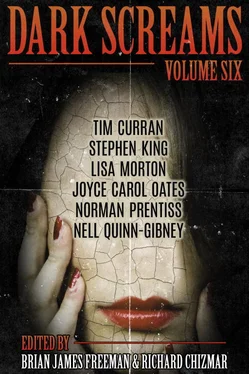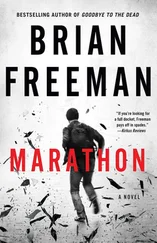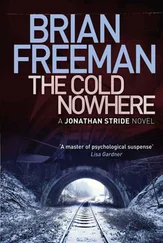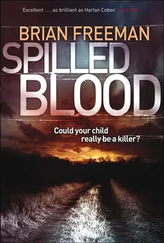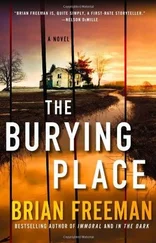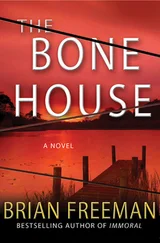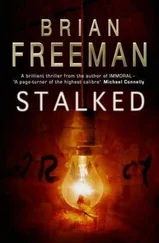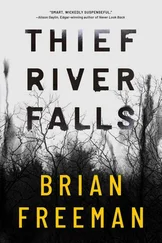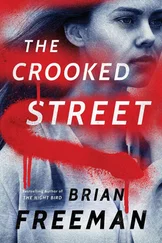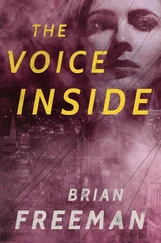Through this human zoo of smoke, body odor, and cheap cologne, a tall, lanky man made his way. His chin was bristled with white whiskers, his gray hair falling to his shoulders. “Aye,” he said when he’d reached the body-snatcher’s table, helping himself to Clow’s mug, “not many good ones left like Stubby McCoy.”
“Well, if it ain’t Johnny Sherily, and him in the flesh,” Kierney said. “Have a drink with us, Johnny. To the old days and older ways.”
Sherily squeezed in at the bench, dipped into his snuffbox, and inhaled a pinch. “All of us sitting here, then, together. What a lovely sight. And to imagine, our ranks thinning by the month.”
“More for us,” another chimed in.
“Aye, for there’s gold in them boneyards yonder,” Clow said, filling his pipe.
That got a few laughs, but barely a grimace from Sherily. The resurrectionists to a man looked up at him like pups to their mother. “Mayhap, mayhap. Gold, there may be… but something else as well, eh, lads? Something not so shiny nor glittering.”
Clow knew then where this was going, what oft-tread superstitious roads Sherily would take them down. Not even the offer of a fresh round could dissuade those grimy-faced men from hearing what the old gent had to say.
“In the North Burial Grounds, for instance,” Sherily said as if he were chewing on rancid meat. “There’s something there, friends, something one and all should avoid, I would think.”
“Stories,” Kierney said. “Crazy stories spun by old ladies.”
Sherily grunted. “Stories, are they? Yarns, would they be?” He fixed Kierney with those granite-hard eyes of his, impaled him, held him aloft for the others to see. “Tell that to Jib McDonald or Keith Strand or me own poor brother Ronny. Or to any of the other snatchers what disappeared in the North Grounds. And what of Dennis Fahey? Him they found in the morning, clutching a grave marker with cold, dead fingers, his lovely red hair gone white and his heart burst in his chest. And his face? By the saints, all the horror from the dark, crawling corners of this world was bottled up in those staring eyes. Aye… and what cause that, I put to you, Mickey Kierney and Sammy Clow? What cause that?”
Clow puffed off his pipe, smoke billowing from his nostrils. “Well, it not be spook nor wraith nor bogey, you can be sure it is true.”
Sherily looked over those hard, set faces. “The North Grounds are plagued by something and we all know that, don’t we? Who amongst us has not heard them there sounds coming from the moist earth? The rumblings as of a belly or that fleshly pounding as from some subterranean devil’s heart?”
“Rats,” Clow said, sipping his gin.
“Rats, is it?” Sherily laughed at this. “Not rats, me fine young friend, it not be no rats that make them sounds far down below. You’ve all heard them, have you not? In the North Grounds, when you pull up a box… those echoes of something vast far beneath you… the scrapings and stirrings, clawings and slitherings. Rats, you say? My arse it’s rats.”
“It can be nothing but rats,” Clow maintained.
Sherily put those gray eyes on him; they glittered like chips of flint. “Would you tell me my business, Samuel Clow? Is that it? Did I not work the hollows with Burke and Hare in the old merry days? Was I not there when Burke swung? Did I not bring cold cuts to Dr. Knox at Surgeon’s Square? Have I not worked every kirkyard and burial ground from Chirnside to Musselburgh? Aye, I have. That was me, you wee bastard, and I was doing me digging when you were still licking cream from yer mother’s tit. Don’t tell me my business, Samuel Clow, for I know the tombyards and kirks better than the worms.”
“You’ve been sweet on the drink for too many years, Johnny Sherily, and this is a fact, I say,” Clow said to them all. “Ain’t nothing in the North Grounds. Nothing but money a-moldering in the ground.”
But no one seemed to believe him. Most had stopped digging there, rooting out the fresh cadavers. And it had nothing to do with guards or dogs or booby-trapped graves. It was something much worse, something that filled all their bellies with a cold and greasy stew.
“I like me potions much as the next man,” Sherily said, “but no man in his right mind digs in the North Grounds. I won’t go out there no more. No sane man will.” He emptied Clow’s mug. “Aye, for I’ve come as close to what haunts that graveyard as any man, do you hear? And more than once. Many’s the time I’ve opened a fresh box in that damnable place only to find that something had chewed its way in from below and made off with the goods. Weren’t rats did that, now, was it?”
That brought silence, even from Clow and Kierney. There was no explanation of God nor man, Sherily told them in a grim, deep voice. For under the North Burial Grounds there were great passages and tunnels, the barrows of some devil that devoured corpses and polished its teeth on human bone. Some malignant grave-crawler worming in the earth and the North Grounds was its lair.
“Yes, them tunnels below… and before you think I’m filled with a mule’s own shit, dare I mention the name of Arnie McKellan? Old Arnie who was rifling graves when the lot of you were still pissing your knickers?”
That was not a name any wanted mentioned.
McKellan was in the Glasgow Lunatic Asylum and no doubt would be for the remainder of his days. Sherily went over his story once again. How he’d been found one morning in the North Burial Grounds, drooling and gibbering and laughing. Claimed he had opened a grave and as he got his stout hands on the coffin of a recently interred young woman, the box had been pulled from his fingers into a black hole beneath.
“…And Arnie, by Christ, he said he saw something down there, something staring up at him from that hole. Something like a huge, horrible skull with teeth like knitting needles. It stared up at him with burning eyes, crawling and creeping about, chewing on a corpse the whole while.” Sherily drained another mug, shook his head. His hands were shaking and the color had drained from his face. “No, sir, I will not go back to the North Grounds. And may God help you if you do… may the worms feed sweetly upon you…”
4
It was some hours later when the grave robbers made it back to Old Town and its clustered, ramshackle buildings that were home. And then to Clow’s place, weaving and singing and praising God, king, and country, bowing to derelicts, pickpockets, and ladies of the evening along the way… and a goodly number of lampposts as well.
Clow lived in a high, narrow house in a neighborhood of the same. All were sagging and hunched, shrouded by fingers of mist, and packed so tightly together you could leap from one steep-pitched roof to the next and never have to worry about rolling off… for one roof overlapped another and you couldn’t fit a coin between them. A pall of smoke hung over the jagged rooftops in a yellow miasma, the gutters overflowing with waste. All in all, the neighborhood was as seedy and dirty as those who called it home. It might have been deemed squalid by the optimistic, but was in fact a slum that should have been razed fifty, sixty years before. It was near the wharves and perpetually smelled of fish oil and offal.
A few fine gentlemen in high hats and dark coats passed Clow and Kierney, tipping their canes and wrinkling their noses, a boy running out in front of them with a lantern, carefully checking for missing cobbles or potholes they might catch their expensive shoes on.
“A good evening to you, Yer Lordships,” Clow said. “Ruddy bastards.”
The Clow house was a tall, leaning, board-and-batten house you could reach only down a winding, cobbled alley that was cramped and suffocating. Lit only by a few sparse gas lamps, it stank of pig excrement and rotting fish. It was his mother’s house, and she rented rooms to sailors and dockhands. Outside the front door, a grimy signpost said, THE SEVEN KEYS, and below that, DRY ROOMS.
Читать дальше
